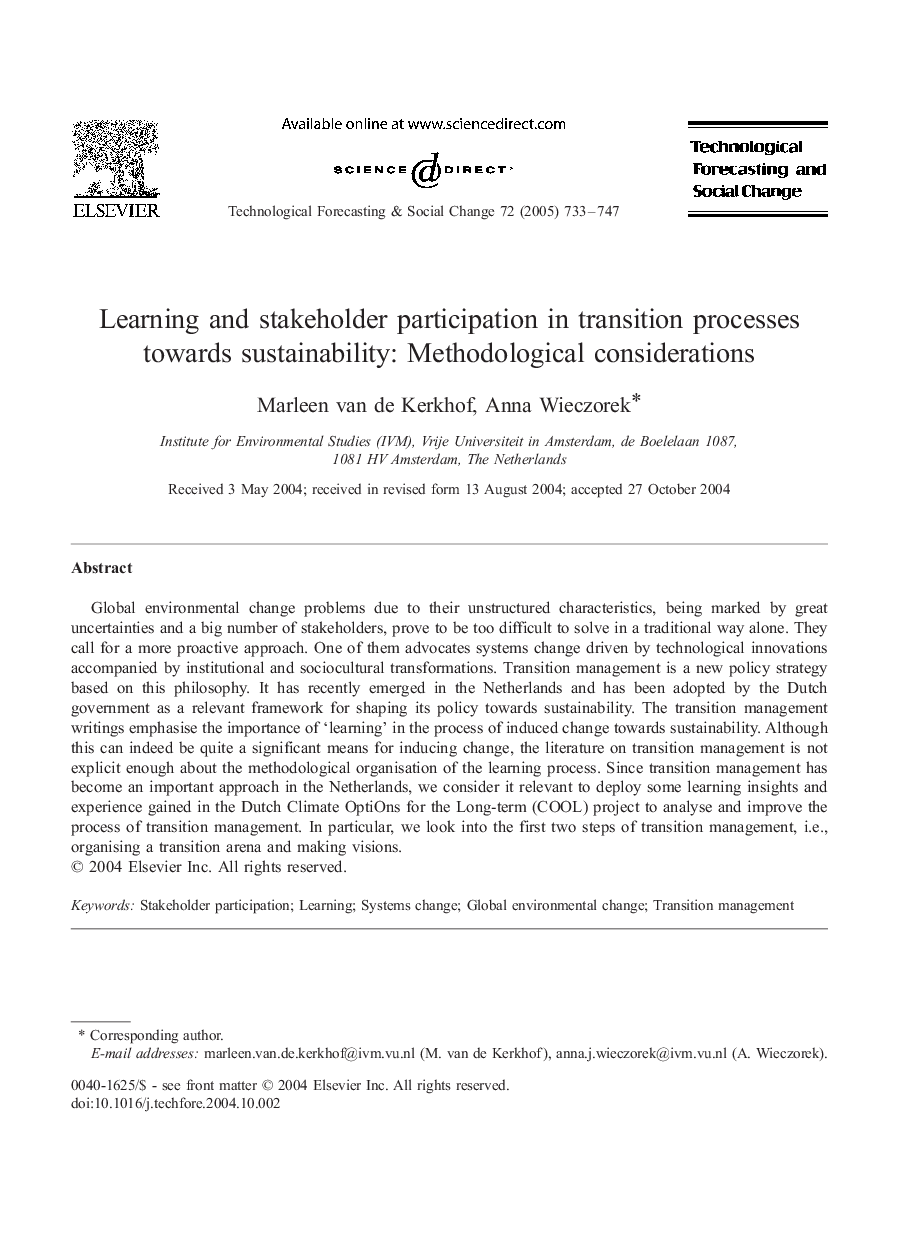| Article ID | Journal | Published Year | Pages | File Type |
|---|---|---|---|---|
| 10442654 | Technological Forecasting and Social Change | 2005 | 15 Pages |
Abstract
Global environmental change problems due to their unstructured characteristics, being marked by great uncertainties and a big number of stakeholders, prove to be too difficult to solve in a traditional way alone. They call for a more proactive approach. One of them advocates systems change driven by technological innovations accompanied by institutional and sociocultural transformations. Transition management is a new policy strategy based on this philosophy. It has recently emerged in the Netherlands and has been adopted by the Dutch government as a relevant framework for shaping its policy towards sustainability. The transition management writings emphasise the importance of 'learning' in the process of induced change towards sustainability. Although this can indeed be quite a significant means for inducing change, the literature on transition management is not explicit enough about the methodological organisation of the learning process. Since transition management has become an important approach in the Netherlands, we consider it relevant to deploy some learning insights and experience gained in the Dutch Climate OptiOns for the Long-term (COOL) project to analyse and improve the process of transition management. In particular, we look into the first two steps of transition management, i.e., organising a transition arena and making visions.
Keywords
Related Topics
Social Sciences and Humanities
Business, Management and Accounting
Business and International Management
Authors
Marleen van de Kerkhof, Anna Wieczorek,
